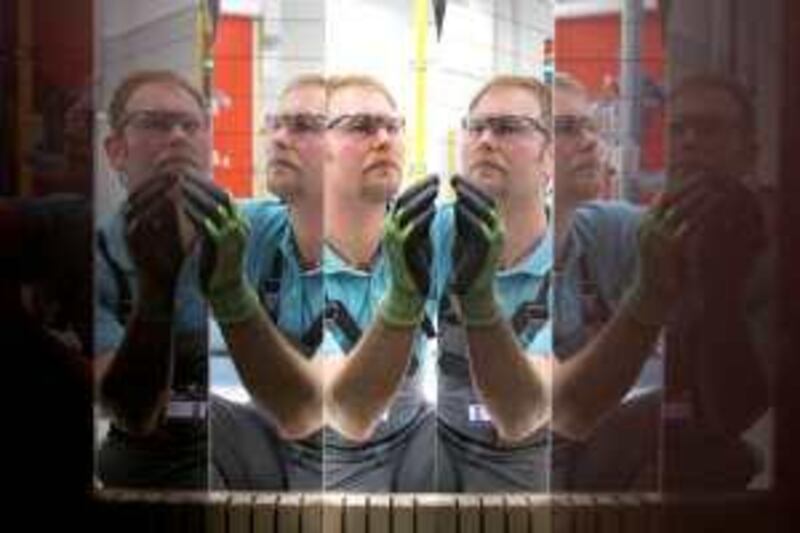Masdar, the clean energy firm owned by the Abu Dhabi Government, has awarded contracts to deploy a new type of costly but highly efficient solar technology that could become the leading source of renewable energy in the country. The firm has awarded two contracts in a project to build at least 1 megawatt (mw) of concentrated photovoltaics (CPV) at Masdar City, the zero-carbon development at the edge of the capital, according to the winning bidders.
Masdar is testing a number of solar technologies to determine which will take the lead role in powering the city and meeting a government goal to generate 7 per cent of Abu Dhabi's electricity from renewables by 2020. CPV technology blends traditional solar cells, called photovoltaics (PV), with mirrors, lenses and motors to concentrate the rays of sun, thereby more than doubling the efficiency of the panels. The technology is significantly more expensive than PV but takes up less space and operates better in hot climates.
"CPV brings great advantages over traditional PV and thin film and represents the future of solar in these high solar resource locations," said Joe Budano, the chief executive of Energy Innovations, a CPV manufacturer based in California that announced a contract from Masdar last week. Energy Innovations did not specify the size of the proposed system or the value of the contract, which it said was awarded in a tender process sponsored jointly by Masdar and the Spanish Instituto de Sistemas Fotovoltaicos de Concentracion (ISFOC).
Last month, Concentrix Solar, a German CPV maker, also announced a contract from Masdar and ISFOC to install a 100 kilowatt (kw) system at Masdar City. The firm said its system was part of a 1mw array. Masdar officials could not be reached for comment yesterday. Sameer Abu-Zaid, the infrastructure manager for power and distribution at Masdar City, has said that the company would host a competition between up to eight CPV makers this year to see which system performs best in desert conditions. Masdar hosted a similar test between traditional PV makers last year.
Energy Innovations said the technology has significant potential in the UAE because it is less susceptible to the negative effects of heat. "Typical PV modules can degrade 15 per cent to 20 per cent from their rated power in hot desert conditions," the firm said. "CPV modules, using heat tolerant triple junction cells, only lose about 5 per cent of their rated power in these same conditions." Commercial deployment of CPV has been held up by the technology's high cost. A report last year by executives of Solfocus, a CPV firm, estimated that it cost between 35 US cents (Dh1.28) and 50 cents to generate each kilowatt-hour (kwh) of electricity over the lifetime of a CPV system built last year. Lifetime costs for standard PV systems hover around 20 cents per kwh.
Experts expect the cost of CPV to fall with a ramp-up in production. The study by Solfocus forecast prices decreasing to between 15 cents and 18 cents per kwh by 2011. The greatest challenge to the deployment of CPV systems in the UAE could be the effects of dust and sand on the systems' motorised tracking systems, a key component that allows the panels to follow the sun throughout the day. "We don't see a lot of trackers because they get destroyed by the sand," said Vahid Fotuhi, the Middle East Director for BP Solar. "[Operations and maintenance costs] are very high."
"We offer trackers for markets that are conducive to trackers. In this region our strategy is to go with the static [module]." @Email:cstanton@thenational.ae





